Black Orpheus (1959)
“True love? Is there such a thing?”
|
Synopsis: |
|
Genres, Themes, Actors, and Directors:
Response to Peary s Review: … and that “females tend to like it better than males, perhaps because of [the] extensive dancing and music (indeed, the film is like an epic dance).” He notes it’s “an extremely colorful film, with emphasis on local customs and costumes” as well as “splendid photography by Jean Bourgoin [that] captures [the] glorious setting.” What Peary’s review curiously neglects to mention is the justifiable controversy over how, as described in Movie Diva’s review, “Poverty was romanticized, with the squalid favelas (shanty towns) shown as picturesque neighborhoods:” … “blessed with great views and colorful décor, filled with charming, carefree, sexually joyful people.” Indeed, this film — made through the gaze of a white (French) male director — is notable for opening up the world’s eyes and ears to the joys of Brazilian music and dance, but at the cost of authenticity. As such, it’s a decidedly mixed bag — but it remains worth a one-time look by film fanatics simply for its visual and aural beauty, and for its historical relevance. Notable Performances, Qualities, and Moments:
Must See? Categories
(Listed in 1001 Movies You Must See Before You Die) Links: |
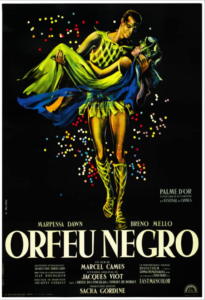
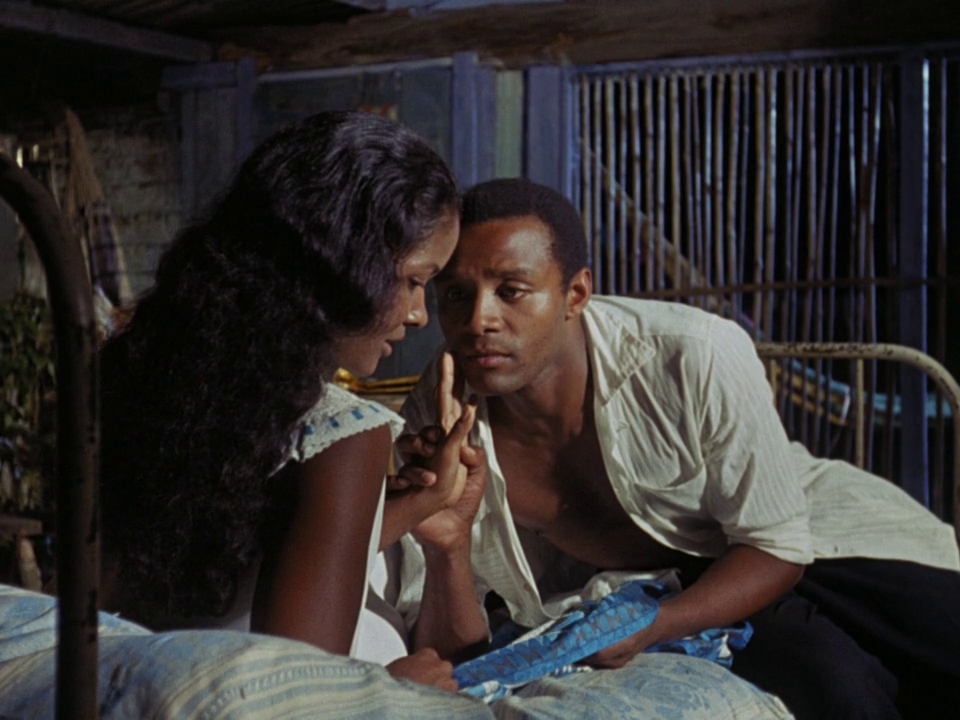
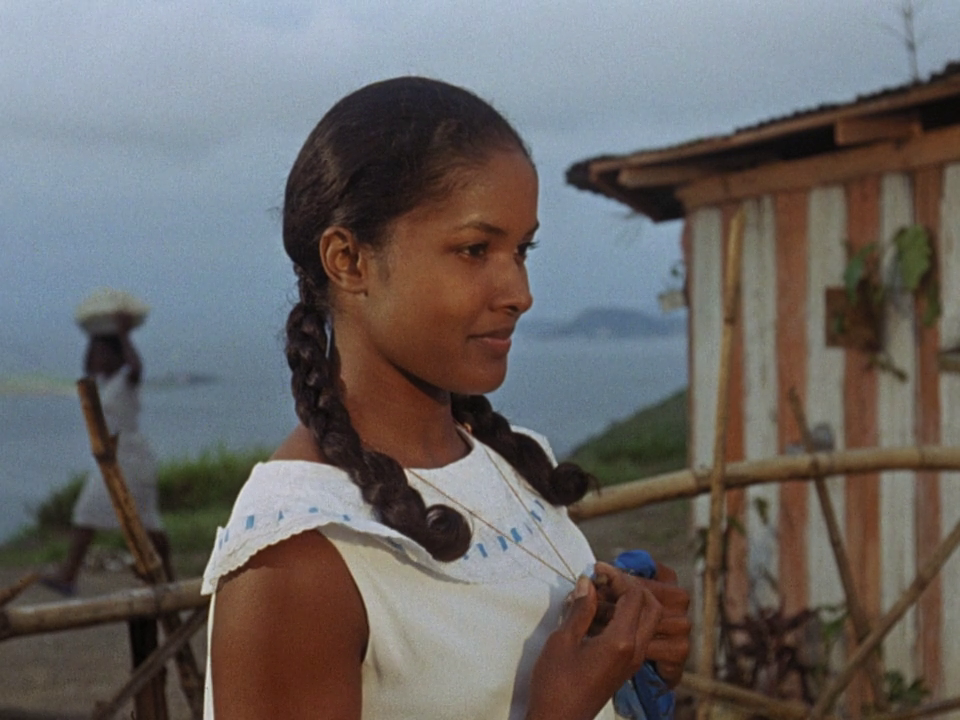
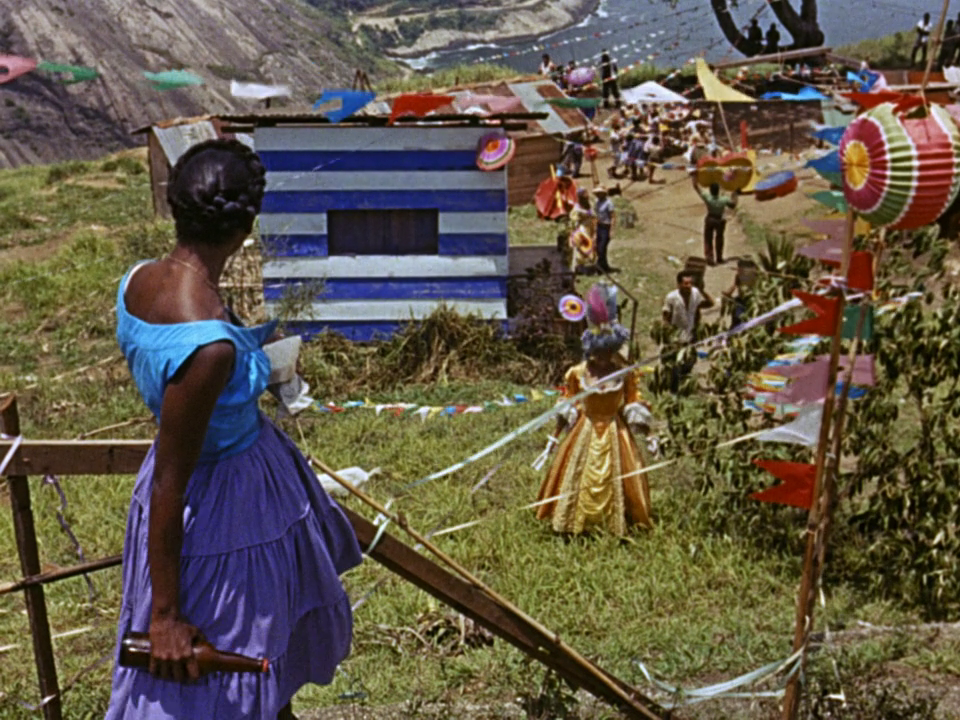

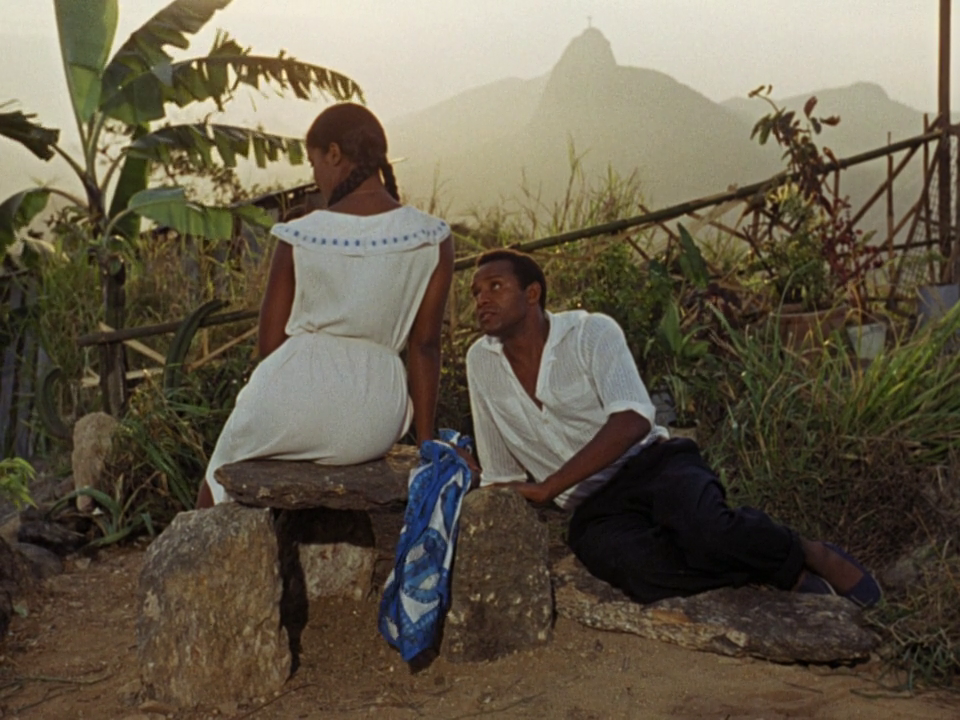
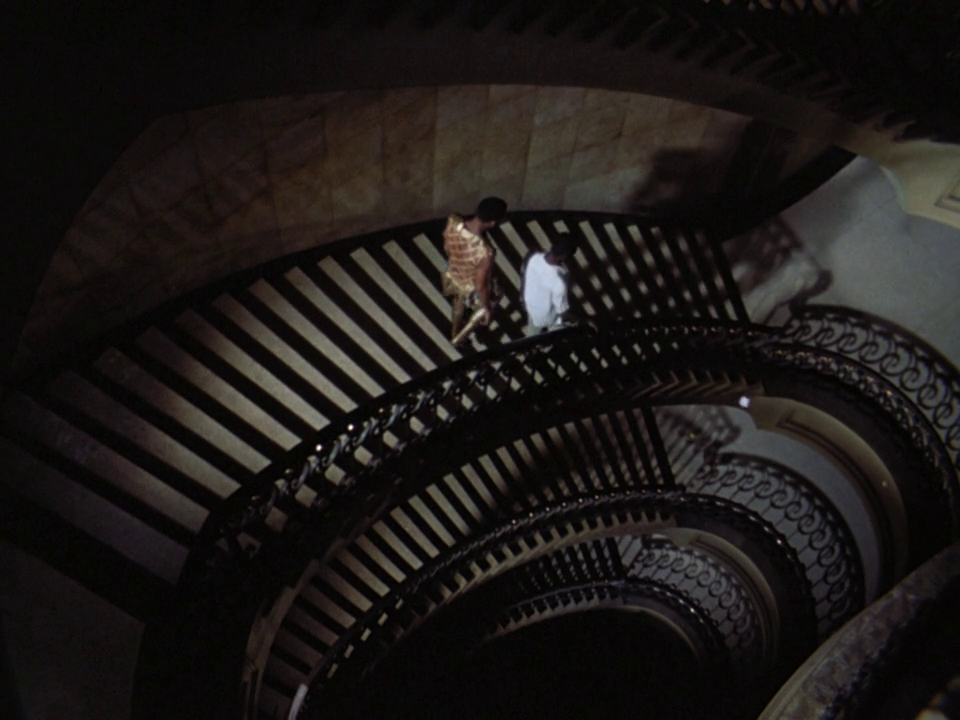
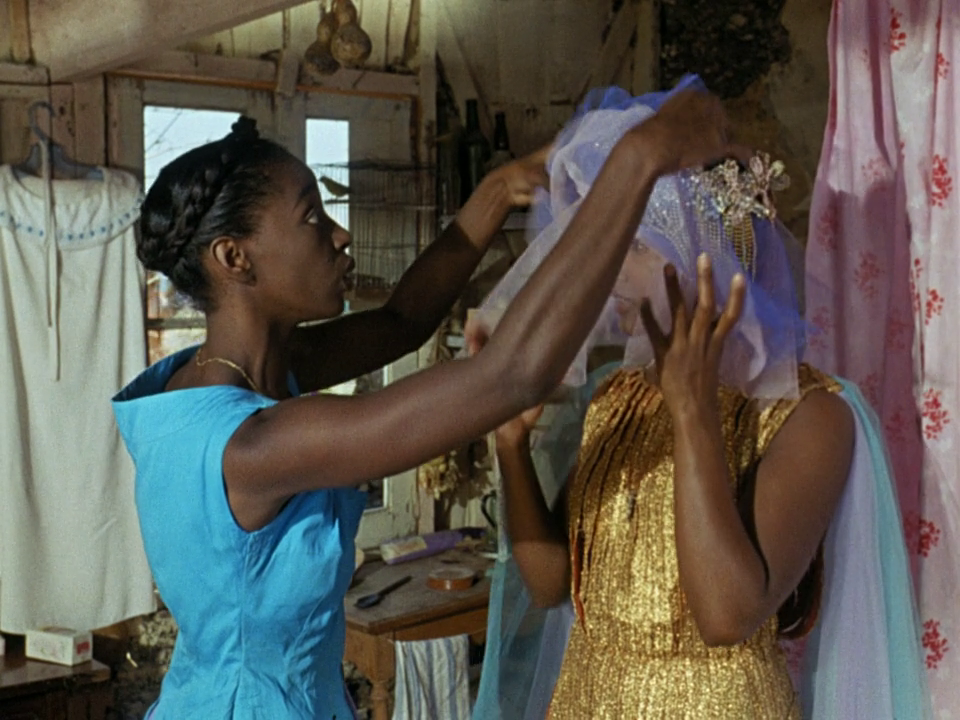
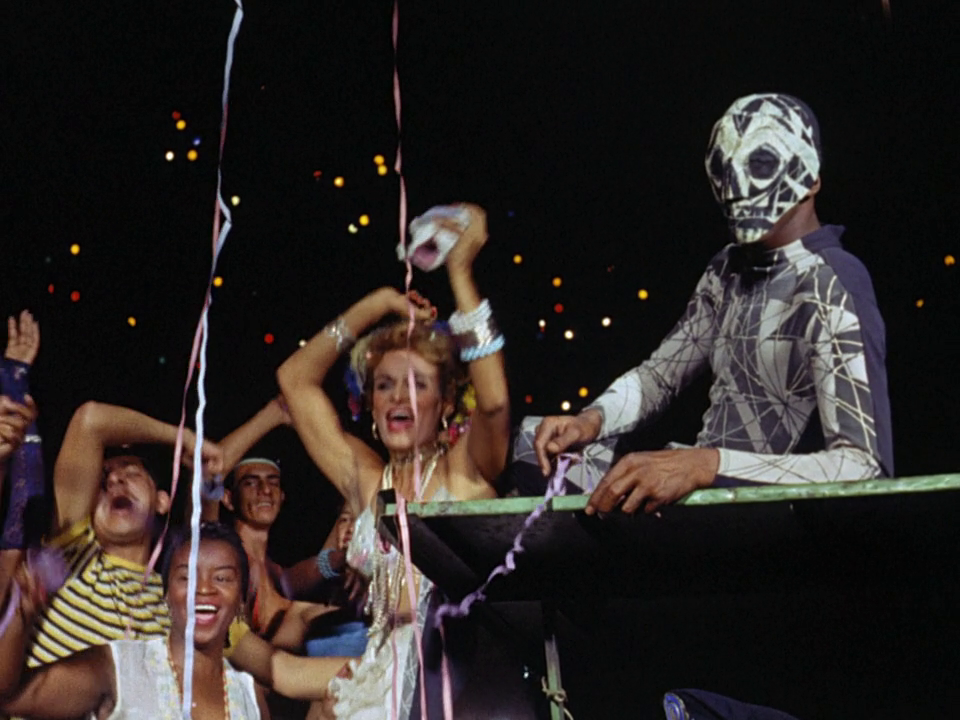
One thought on “Black Orpheus (1959)”
Agreed; must-see “for its historical relevance”. As posted (5/13/17) in ‘The ’40s-’50s in Film’ (fb):
“My heart sings with newfound happiness – at the dawning of this new love…”
‘Black Orpheus’ (1959): Winner of the Palme d’Or at Cannes and Oscar for Best Foreign Film. I had not seen this since high school – at a college campus foreign film fest. SO nice to revisit it again – thrilled by how quickly it flies by…and by its simplicity: Girl Meets Boy, Who Is Engaged To Uber-Jealous Spitfire.
Luckily, the film’s focus is on the main Romeo and Juliet-esque courtship, which plays out joyously against a somewhat-pastoral Rio de Janeiro setting that’s slowly gearing up for Carnival Time. As if the fiery fiancee were not enough of a threat, our heroine is also being threatened by the specter of death… as the wild abandon of Carnival unleashes in full splendor.
A special treat is the sidebar of the heroine’s cousin and her boyfriend – who add some welcome comic relief. Ultimately this visual tone-poem is a tale of doom… yet the film’s last extended image (of ‘the next generation’) is so uplifting that it made me smile and it warmed my heart.